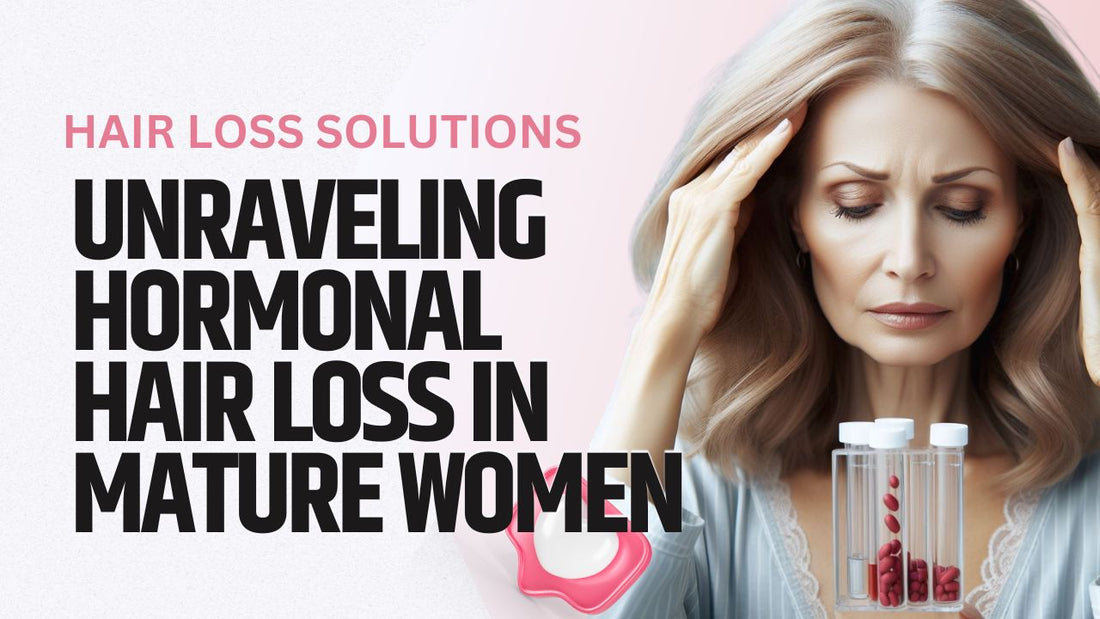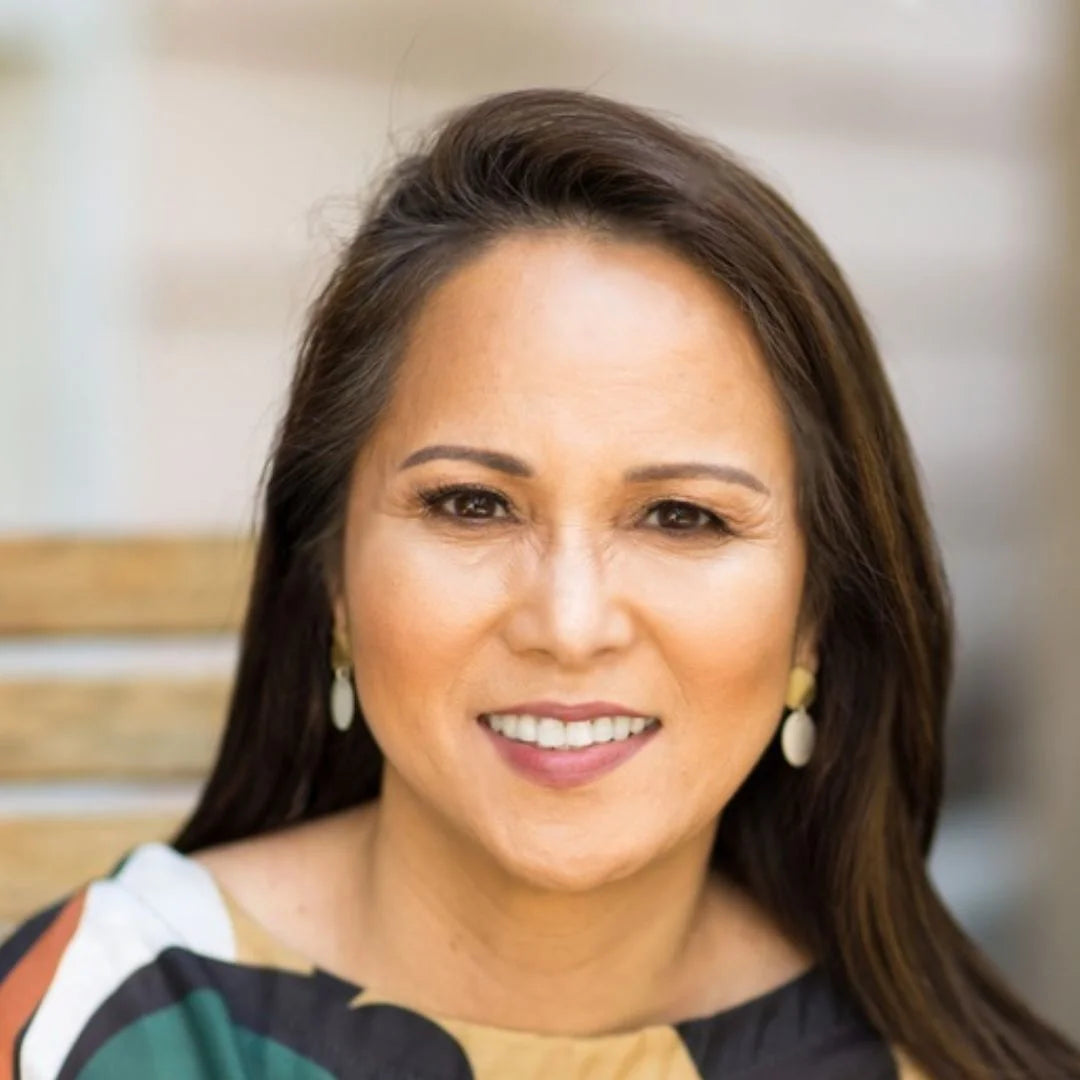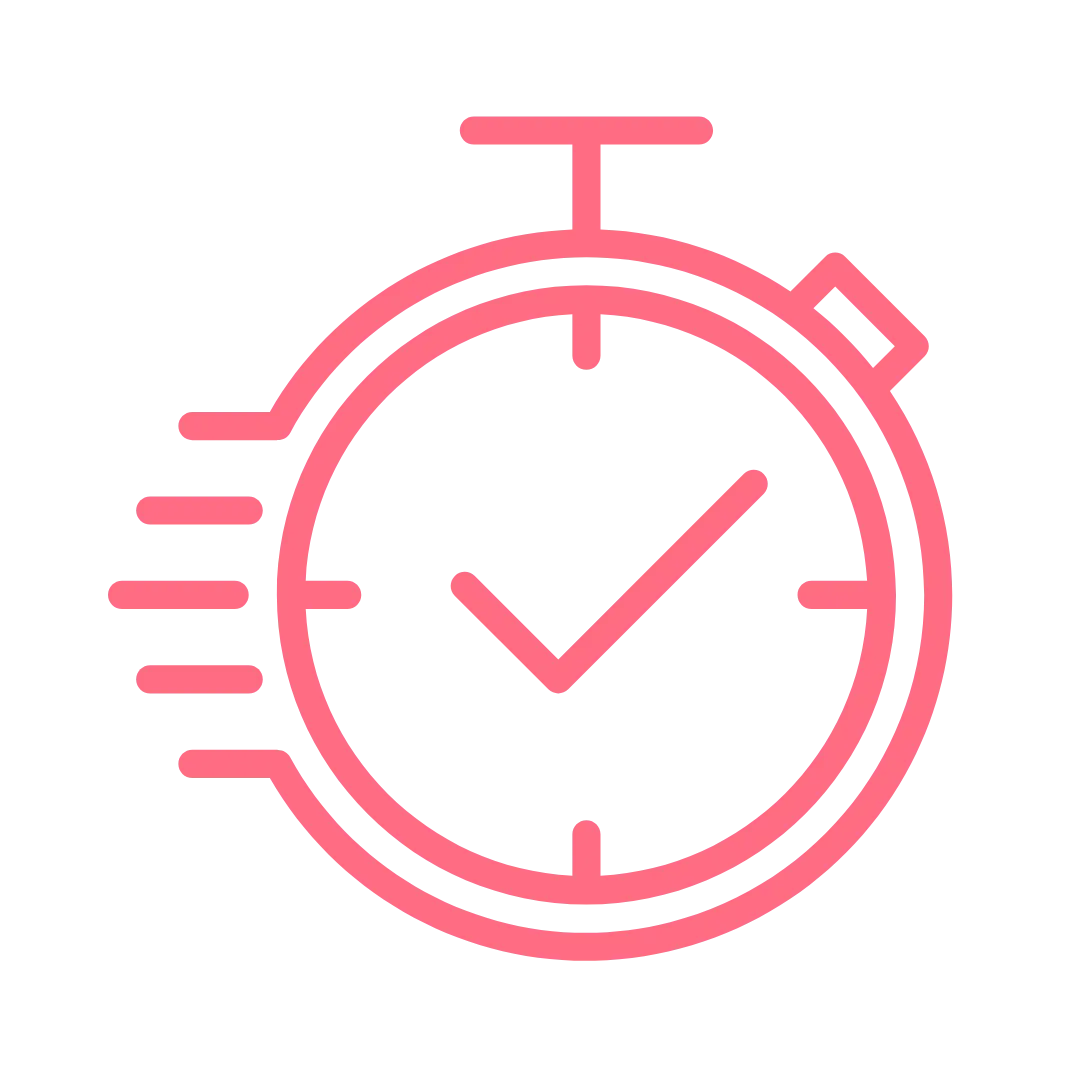
Unraveling Hormonal Hair Loss in Mature Women
Share
Hormonal hair loss is a common yet often distressing issue for many mature women. As the body undergoes various hormonal changes, especially during menopause, the impact on hair health can be significant. This article aims to shed light on the complexities of hormonal hair loss, offering insights and strategies to manage it effectively.

Understanding Hormonal Changes in Mature Women
The journey into menopause brings about a myriad of changes in a woman’s body, including fluctuations in key hormones like estrogen and progesterone. These hormonal shifts can directly impact hair growth cycles, leading to thinning hair or increased hair loss. Understanding this connection is crucial for identifying appropriate treatment options.
Common Signs of Hormonal Hair Loss
Hormonal hair loss in mature women typically presents as a thinning of hair across the scalp rather than a receding hairline or bald spots. This type of hair loss, known as female pattern hair loss, can be recognized by a widening of the part or a reduction in the volume and coverage of hair.

The Science of Hormonal Hair Loss
The root cause of hormonal hair loss lies in the sensitivity of hair follicles to hormonal changes. Decreased levels of estrogen and progesterone can lead to a shorter hair growth phase and a delayed start of the new hair growth cycle, resulting in thinner hair and reduced hair density.
Addressing Nutritional Deficiencies and Hair Loss
Nutrition plays a pivotal role in hair health. Deficiencies in essential nutrients can exacerbate hormonal hair loss. A diet rich in vitamins and minerals such as iron, vitamin D, omega-3 fatty acids, and biotin is important for maintaining healthy hair growth and mitigating the effects of hormonal imbalances.

Effective Hair Loss Treatments and Remedies
When tackling hormonal hair loss, it's essential to explore various treatment options. Conventional treatments often include topical minoxidil, which can help stimulate hair growth. Hormone replacement therapy may also be considered, but it's important to discuss the potential risks and benefits with a healthcare provider. Additionally, emerging treatments like low-level laser therapy show promise in promoting hair regrowth.
Proactive Rosemary Hair Booster Oil: A Natural Approach
A natural alternative or complement to these treatments is the Proactive Rosemary Hair Booster Oil. This product harnesses the power of rosemary oil, known for its hair growth-stimulating properties, along with other beneficial ingredients like grape seed and jojoba oil. These natural components work together to nourish the scalp and strengthen hair follicles.
Incorporating Proactive Rosemary Hair Booster Oil in Hair Care Regimens
Integrating Proactive Rosemary Hair Booster Oil into your daily hair care routine can be a significant step in managing hormonal hair loss. Regular application of the oil to the scalp can invigorate hair follicles, potentially leading to improved hair growth and thickness. Its natural formulation makes it a gentle yet effective option for daily use.
Holistic Lifestyle Changes to Combat Hormonal Hair Loss
In addition to specific hair care products, adopting a holistic lifestyle can play a crucial role in combating hormonal hair loss. This includes maintaining a balanced diet rich in essential nutrients, staying hydrated, getting regular exercise to improve overall circulation, and managing stress levels through relaxation techniques like yoga or meditation.

Coping Strategies and Emotional Support
Dealing with hormonal hair loss can be emotionally challenging for many women. It’s crucial to acknowledge these feelings and seek support when needed. Joining support groups, speaking with a therapist, or simply sharing concerns with friends and family can be beneficial. Finding ways to boost self-esteem and body positivity is also important in this journey.
FAQs: Hormonal Hair Loss in Mature Women
Can lifestyle changes alone reverse hormonal hair loss?
While lifestyle changes can significantly impact hair health, they may not completely reverse hair loss caused by hormonal changes. However, they are crucial in a comprehensive treatment approach.
How long should I use hair growth products to see results?
It typically takes several months of consistent use to see noticeable results from hair growth products. Patience and persistence are key.
Is Proactive Rosemary Hair Booster Oil suitable for all hair types?
Yes, Proactive Rosemary Hair Booster Oil is designed to be suitable for various hair types. Its natural ingredients make it a gentle option for most users.
Navigating Hormonal Hair Loss with Confidence
In navigating hormonal hair loss, understanding the underlying causes and exploring various treatment options, including natural remedies like Proactive Rosemary Hair Booster Oil, is essential. Equally important is adopting lifestyle changes that support overall health and hair vitality.
Embracing Your Hair Journey with Resilience and Grace
Ultimately, managing hormonal hair loss in mature women is about embracing the journey with resilience and grace. It involves understanding the changes your body is going through, taking proactive steps to address hair health, and maintaining a positive outlook. Remember, hair health is a reflection of overall well-being, and taking care of yourself is the best way to nurture your hair.
















